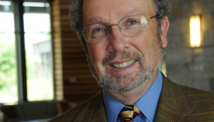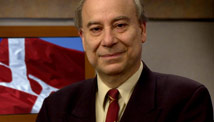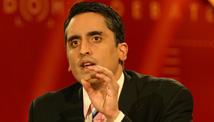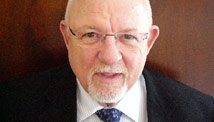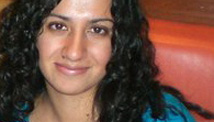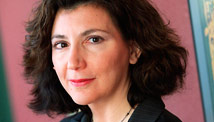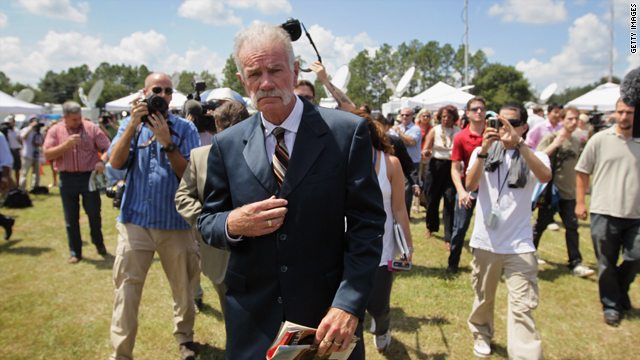 (CNN)
(CNN) -- When Terry Jones, a Florida pastor, announced his plan to burn Qurans on 9/11 with a tweet and an "International Burn a Koran Day" page on Facebook, he ignited an international conflagration of outrage.
As news spread, worldwide condemnation and anxiety mounted. At least two people died in a demonstration in Afghanistan. It seemed this obscure self-proclaimed pastor in Gainesville, Florida, was determined to carry out an action of catastrophic global consequences.
U.S. Defense Secretary Robert Gates even called him. Jones finally changed his mind.
Now that the crisis is over, CNN asked contributors to write their observations of what happened, and what lessons the pastor's threat and the events that followed can teach us.
Bob Steele, director of the Janet Prindle Institute for Ethics at DePauw University and the Nelson Poynter Scholar for Journalism Values at the Poynter Institute.
Journalism is a powerful tool with very sharp edges. Used wisely and skillfully this tool can craft solid, substantive stories that meaningfully inform citizens. When used irresponsibly and incompetently, the journalism tool causes great harm.
Regrettably, the saga of the Rev. Terry Jones and his Quran-burning threat proves that many journalists and news organizations too easily abandon news judgment, professionalism and ethical standards in a zealous quest for a controversial story.
Journalists could not and should not have ignored Jones and his threats, no matter how inane and injurious they were. Journalists have an obligation to shine the light of scrutiny on those who threaten others, and that is what Jones and his disciples were doing. They were preaching intolerance and hate with the potential for real harm. However, the coverage of this small band of publicity seekers was vastly out of proportion to the value of the news story.
The intensity and tone of the reporting seriously skewed its significance. The flawed journalism fueled the fervor of many TV and radio talking heads and online commenters producing much more diatribe than dialogue. The journalistic power tool is a force for good, but only when used wisely and well. That didn't happen in this case.
Akbar Ahmed is professor and Ibn Khaldun Chair of Islamic Studies at American University in Washington and the former high commissioner from Pakistan to the United Kingdom. He is author of "Journey Into America: The Challenge of Islam" (Brookings Press).
While the desire to humiliate or hurt those who are not like us may be played out on a local level, we learned in the case of Pastor Terry Jones how quickly it could be transported onto the global stage, dragging in the entire world in confrontation. Unfortunately, although Jones canceled his plans, we learned that the very idea was so offensive that it will continue to percolate all over the Muslim world. Several people have already lost their lives in demonstrations.
We learned how a great country, founded in some of the noblest ideals of human civilization embodied by its Founding Fathers -- civility and respect for knowledge -- could have its image abroad tarnished by the actions of an individual. And it was confirmed for us that the actions of small groups of people will continue to exacerbate the already complicated and often tense relationship between the United States and the Muslim world.
Finally, we also learned how Jews, Christians and people of other or no faiths all categorically rejected the idea of burning the Quran as disrespectful and even harmful. In that sense, Jones' story had a happy ending, showing that there is such a thing as reason and compassion in the hearts of the high and mighty and the ordinary folk, which trumped hatred and bigotry.
Arsalan Iftikhar is an international human rights lawyer, founder of TheMuslimGuy and legal fellow for the Institute for Social Policy and Understanding in Washington.
Usually in America, when a lone crackpot of any political or religious persuasion threatens to commit a publicity stunt that will needlessly enrage millions of other innocent people, our basic common sense tells us that our national media should not even give that person the time of day.
Sadly, not only did Terry Jones successfully receive media attention, but because of the overexposure of this one man, we are beginning to see other "copycat" Quran burnings around the country.
The consequences of the widespread media coverage of this possible event were so serious that both President Obama and Gen. David Petraeus warned that burning copies of the Quran would endanger the lives and well-being of American soldiers in Iraq and Afghanistan. There have already been other copycat Quran burnings at mosques in Tennessee, Michigan and other states.
Sadly, because of our media's overexposure of Jones and his stupid anti-Muslim publicity stunt, we may have only seen the beginning of what might turn into a national trend of Quran burnings around the country.
Brian Fishman is a counterterrorism research fellow at the New America Foundation, a think tank focused on innovative ideas across the political spectrum.
The statement from Asaib Ahl al-Haqq, a Shiite militant group in Iraq with ties to Iran, was typical of militant Islamist responses to the would-be Quran-burning in Florida: "The enemy should know that we are serious about this matter and that, God willing, we are capable of setting the Iraqi land on which they stand on fire; turning it to a volcano that never calms and a fire that never dies, regardless of the sacrifice."
Propaganda to be sure, but Asaib Ahl al-Haqq specializes in rocket attacks on American facilities and has the capability to increase violence. Its capability cannot be wished away.
The Florida church's decision to stand down will mitigate the radicalization and violence that might have occurred had it gone forward. But there were serious strategic costs to the U.S. from the entire sordid episode, including a missed opportunity to remind the world, and ourselves, what 9/11 and the response to it is all about. That matters when we have enemies like Gulbuddin Hekmatyar in Afghanistan, who explain the Quran burning as "part of the American war against Muslims" that "they started ... 60 years ago by occupying Palestine, and then invaded Iraq and Afghanistan."
President Obama, Gen. David Petraeus and others were right to condemn the Quran burning, even if their comments increased domestic media coverage. Jihadis were already capitalizing on the situation, and official silence would be easily manipulated by jihadi groups as support. It was a lose-lose situation.
In a world of global communications, crackpots such as the would-be Quran-burners in Florida can disrupt the U.S. war on terror. In the future, Americans might take some wisdom about the responsibilities that come with the right to free speech from Petraeus' guidance to his troops upon taking command in Afghanistan: "Live our values. Stay true to the values we hold dear. This is what distinguishes us from our enemies. We are engaged in a tough endeavor. ... All of us experience moments of anger, but we must not give in to dark impulses or tolerate unacceptable actions by others."
Ed Rollins, a senior political contributor for CNN, is senior presidential fellow at the Kalikow Center for the Study of the American Presidency at Hofstra University. He was White House political director for President Reagan and chairman of the National Republican Congressional Committee.
If a tree fell in a forest and hit Terry Jones of Gainesville, Florida, on the head on September 11, would anyone other than the 50 poor souls who turn to this misguided preacher for spiritual guidance each Sunday care? Would the falling tree make any sound other than thump?
Before the last few weeks, nobody would even know the pastor existed. Then why did his reckless and self-serving threats to burn hundreds of copies of the Quran become a national and international story that, according to Google news, was in more than 12,000 articles? The secretary of state, defense secretary and many other serious people put aside their real work to placate this man's ego.
We were told that his actions would lead to serious threats against the mightiest military in the world and put our soldiers in jeopardy. Have we all lost our minds? Unfortunately, it's the age we live in. Instant communication becomes instant celebrity. We live in a society where "yelling fire in a theater" when there is none won't get you arrested -- but will get you a slot on the morning shows. As never before in our history, instant news stories, regardless of whether they're relevant or not, are just that: "instant news stories."
"Who cares?" and "Does this really matter?" should be the guiding principles of our news organizations. We all know there are consequences when someone irresponsibly uses the media for his message of hate. We will be the poorer if the slogan "All the news that's fit to print," which has appeared on the front page of The New York Times since 1896, is replaced with "Send us anything that's a little sensational to fill our blogs and 24-hour air space." The First Amendment guarantees that we can say anything, but it doesn't guarantee that news organizations need to broadcast or print it.
Farah Akbar is a New York-based writer who has contributed to Gotham Gazette, Islamonline.net, Al-Ahram Weekly and Salon.com.
The world is full of attention-hungry individuals willing to do just about anything for fame. Terry Jones got it, and frankly, he did not even have to do much. A provocative threat from him wrapped the media around his finger for days.
His distasteful plan to burn Qurans on the ninth anniversary of September 11 at an obscure church had the media obsessed about him, as teenyboppers are about Justin Bieber.
Jones, a radical, fringe Christian with less than 50 followers, wound up having a change of heart. His only claim to fame before this was a hateful book he wrote that has only six reviews on Amazon.com, most of which are negative. And besides his title of pastor, what authority or influence does he have when it comes to matters of religion?
But if Jones had followed through on his pledge to burn Islam's holy book, the results could have been disastrous. Many Muslims perceive any insult toward their revered book as an attack on their faith. The Daily Star, an English-language paper in Lebanon, said that if the event were to have taken place, it was "likely to ignite a fire of rage that could consume swaths of the globe." Demonstrations against the burning took place in Pakistan, Gaza, Indonesia and Afghanistan.
His cheap attempt at getting attention trumped important news, such as the devastating floods that have ravaged much of Pakistan. Aren't there individuals on the planet who are actually making a positive difference in the lives of others who would have been more worthy of that attention?
How could this situation, with the potential to have had very damaging effects here and elsewhere been avoided? Simple -- don't let obscure people, whose actions have the potential to incite violence, dominate the news cycle.
Stephen Prothero, a Boston University religion scholar and author of "God Is Not One: The Eight Rival Religions that Run the World," is a regular CNN Belief Blog contributor.
In the Quran burning that wasn't, seven lessons can be learned.
1. There are extremists in every religion. Islam has them. Christianity has them. We shouldn't let our perceptions of Christianity be determined by Terry Jones, or our perceptions of Islam by al Qaeda.
2. Don't let the extremists control the story. When Jones canceled his 9/11 Quran burning and then abruptly uncanceled it, you could almost hear a collective groan from the media: How and why did we end up giving this nut so much airtime? The more important question is whether we are going to let the fringe control the religion conversation. We have done that in U.S. politics to a shocking extent. Are we going to let it happen with Islam?
3. We need stories about interfaith cooperation to balance the stories about religious conflict. Yes, conflict sells newspapers and captures eyeballs. And God knows there is plenty of conflict to cover. But the hard work of religion is being done every day by people like Zeenat Rahman of the Chicago-based Interfaith Youth Core, who challenges her readers in the Chicago Tribune to seek out their Muslim neighbors and ask them what they believe.
4. The religious world is flat, too. We can gaze into the inner workings of a microchurch in Gainesville, Florida, not only from New York and Atlanta, Georgia, but also from Kabul, Afghanistan, and Jakarta, Indonesia.
One reason Gen. David Petraeus felt he had to respond to Jones was that the story was gaining traction in the Muslim world. No religion story is merely local any more.
5. Religion matters. Even if you aren't religious you cannot avoid the power of religion, which continues to refuse to be relegated to the private realm either at home or abroad. Religious beliefs and behaviors may or may not move mountains, but they move people. They turn elections in India and in the United States, and they affect economic behavior in Saudi Arabia and China.
6. Religious illiteracy is rampant, not least about Islam. It is easy to wag a finger at Jones for condemning a book he has by his own admission never read, but Americans as a group admit to being almost ignorant about the world's second largest religion. According to a poll released last month by the Pew Research Center, 30 percent of Americans say they know "not very much" about Islam and 25 percent say they know "nothing at all."
Are we going to continue to get our "information" about Muslims and the Quran from Jones, Franklin Graham and Newt Gingrich? Perhaps it is time we started listening to Muslims themselves -- to Imam Feisal Abdul Rauf of the Park51 project, Ingrid Mattson of the Islamic Society of North America and Rep. Keith Ellison of Minnesota.
7. We need to have an informed conversation about Islam. After 9/11, that conversation died aborning, collapsing into uninformed platitudes about how Islam was "a religion of peace" or "a religion of war." We need to get beyond the platitudes by informing ourselves about, among other things, the Quran.
Jocelyne Cesari is director of the Islam in the West Program at Harvard University and Johns Hopkins University. She is a political scientist, specializing in contemporary Islamic societies and Islam in Europe and in the United States. For more, see euro-islam.info and islamopediaonline.
In the immediate aftermath of 9/11, Americans hurried to bookstores to buy the Quran, hoping to understand why 19 Muslim extremists carried out the most devastating terrorist attacks against America ever.
Now, on the ninth anniversary of 9/11, some Americans prefer to desecrate Qurans. Terry Jones created an international media frenzy by threatening to burn 200 Qurans, but didn't, while members of the Westboro Baptist Church made good on their threat, but with hardly any media attention at all. Vandals left burned Qurans at mosques in East Lansing, Michigan, and Knoxville, Tennessee.
While resentment has simmered against Muslims in America since 9/11, not since the attacks has the backlash been so intense. There are several reasons. For starters, America's military actions in Iraq and Afghanistan, accompanied by the news media images of al Qaeda and Taliban extremists committing suicide attacks and beheading infidels, has planted a monolithic and evil image of Muslims in Americans' heads.
Second, the persistent and increased threat of radical Islamism across the world, coupled with the rise of homegrown terrorism, from would-be subway bomber Zazi Najibullah and Fort Hood shooting suspect Nidal Hasan, to the more recent Times Square bombing attempt, among others. This year, fear and feelings of insecurity are growing among many Americans, exacerbated by economic hard times and perceptions of an America in decline.
What hasn't changed is that the Quran is still perceived by many Americans as the motivating force behind Islamic radicalism. It's not a completely unreasonable conclusion, given that extremists cherry-pick verses of the Quran to justify indiscriminate violence. Yet it's a misinformed conclusion. No Scriptures, especially sacred religious texts, stand on their own.
Taking the Quran out of context to turn it into a political weapon against the West is what radicals do. While the media and public often assume that extremist interpretations of the Quran are classical interpretations, they are in fact new, and very far from Islamic tradition and centuries of religious interpretations and contextualization of message.
Repressive regimes and America's military presence in the Middle East, for example, have led to the creation of a political movement like al Qaeda. Taking these factors into account, rather than cherry-picking Quranic texts for evidence of violent tendencies, as radicals do, would be a much more effective way of countering terrorism.
Ruben Navarrette Jr., a regular contributor to CNN.com, is a nationally syndicated columnist and an NPR commentator.
Terry Jones never made good on his boorish threat to burn a copy of the Quran. But the Florida pastor did manage to ignite an international firestorm.
Of course, Jones had help. The same media that helped fan the flames of this controversy because apparently some readers, viewers and listeners were curious about whether the attention-craved preacher would actually carry out his plan, later turned around and accused Jones of creating unrest and inciting violence around the world.
That theory gives Jones more credit than he's due. It's obvious that he was playing us -- the media, politicians, activists, all of us. Whatever it took to get him the most attention at any given time -- make a threat, try to make a deal, cancel a threat, catch a flight to New York, etc. -- he did it.
Sadly, in the end, according to news accounts, at least three copies of the Quran were burned. And at a counterdemonstration in London, anti-American protesters burned the Stars and Stripes and a copy of the U.S. Constitution. So now we know: It doesn't take much to turn mischief into madness.
The opinions expressed in these commentaries are solely those of the authors.



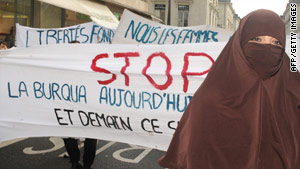
 KUALA LUMPUR, Sept 15 — Leading contender for the PKR deputy presidency contest Datuk Zaid Ibrahim warned its members today that the party risks turning into another Umno unless there is a leadership change.
KUALA LUMPUR, Sept 15 — Leading contender for the PKR deputy presidency contest Datuk Zaid Ibrahim warned its members today that the party risks turning into another Umno unless there is a leadership change. By Stephanie Sta Maria - Free Malaysia Today
By Stephanie Sta Maria - Free Malaysia Today
 Teoh, however, pins the blame for this sensitivity on the constant harping by the government for Malaysians to be tolerant rather than understanding of each other.
Teoh, however, pins the blame for this sensitivity on the constant harping by the government for Malaysians to be tolerant rather than understanding of each other.

 By Teoh El Sen - Free Malaysia Today
By Teoh El Sen - Free Malaysia Today
 Where does the funding of these projects come from?
Where does the funding of these projects come from?




